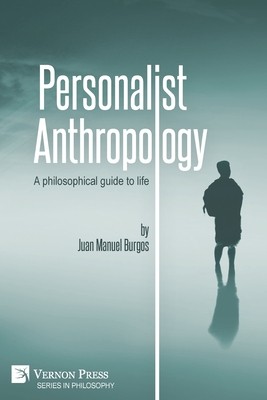
- We will send in 10–14 business days.
- Author: Juan Manuel Burgos
- Publisher: Vernon Press
- ISBN-10: 1648894887
- ISBN-13: 9781648894886
- Format: 15.2 x 22.9 x 1.7 cm, minkšti viršeliai
- Language: English
- SAVE -10% with code: EXTRA
Reviews
Description
Philosophical personalism has generated a very powerful field of study in the twentieth and twenty first centuries but has not produced a systematic exposition. This book fills this big gap by offering for the first time a full systematic personalistic vision of the human person.
This ambitious volume offers a pedagogical and integrated exposition of philosophical personalism, answering vital questions about human identity and existence in a way that the reader (or student) can achieve an integrated view of the person. The book points to the real life of each person so that, by partially unraveling the mystery of the personal being, it becomes a philosophical guide for life. For these reasons, the book can be used both for academic purposes, as a manual of philosophy of man or for personal enlightenment.
Divided in five parts, the first part of the book works as an introduction, offering an overview of the human person and of the notion of person. The second part describes the internal structure of the human being addressing topics as corporeity as a personal fact; sensibility and the senses; affectivity; intelligence; freedom understood as choice and self-determination and, finally, the personal self. The third part analyses the person in action and some special types of action such as work and language. The fourth part deals with interpersonal relationships beginning with I-You relationship (friendship, love) and following with the family and the social structure. Finally, part five deals with the so-called ultimate questions, that is, those that decide the final meaning of each person's life, namely, time, death, immortality, and religion.
EXTRA 10 % discount with code: EXTRA
The promotion ends in 21d.13:28:24
The discount code is valid when purchasing from 10 €. Discounts do not stack.
- Author: Juan Manuel Burgos
- Publisher: Vernon Press
- ISBN-10: 1648894887
- ISBN-13: 9781648894886
- Format: 15.2 x 22.9 x 1.7 cm, minkšti viršeliai
- Language: English English
Philosophical personalism has generated a very powerful field of study in the twentieth and twenty first centuries but has not produced a systematic exposition. This book fills this big gap by offering for the first time a full systematic personalistic vision of the human person.
This ambitious volume offers a pedagogical and integrated exposition of philosophical personalism, answering vital questions about human identity and existence in a way that the reader (or student) can achieve an integrated view of the person. The book points to the real life of each person so that, by partially unraveling the mystery of the personal being, it becomes a philosophical guide for life. For these reasons, the book can be used both for academic purposes, as a manual of philosophy of man or for personal enlightenment.
Divided in five parts, the first part of the book works as an introduction, offering an overview of the human person and of the notion of person. The second part describes the internal structure of the human being addressing topics as corporeity as a personal fact; sensibility and the senses; affectivity; intelligence; freedom understood as choice and self-determination and, finally, the personal self. The third part analyses the person in action and some special types of action such as work and language. The fourth part deals with interpersonal relationships beginning with I-You relationship (friendship, love) and following with the family and the social structure. Finally, part five deals with the so-called ultimate questions, that is, those that decide the final meaning of each person's life, namely, time, death, immortality, and religion.


Reviews